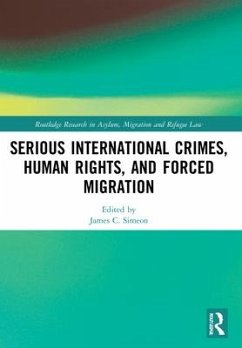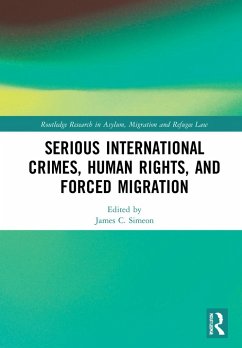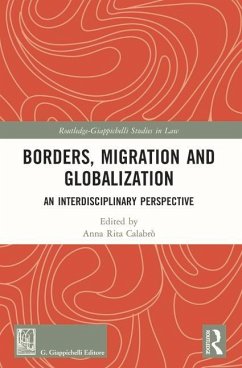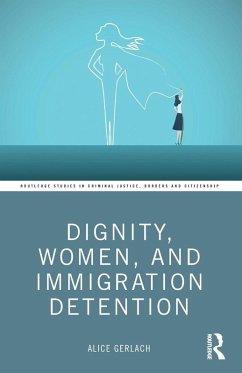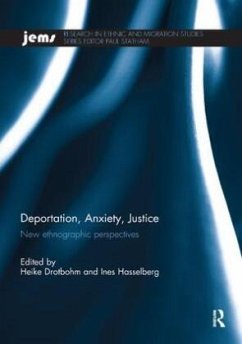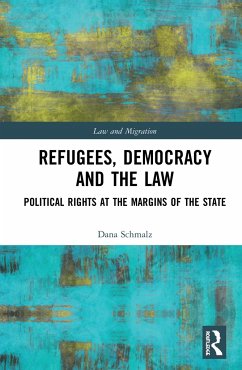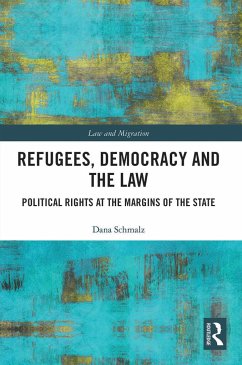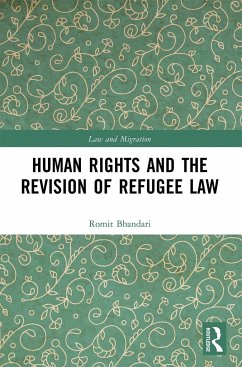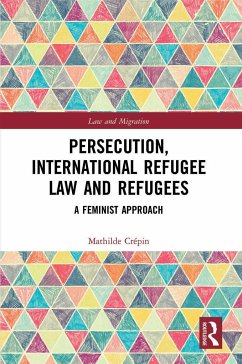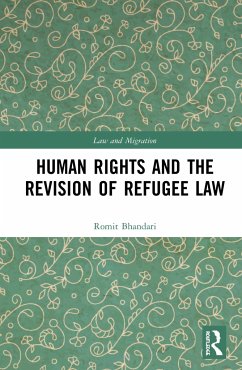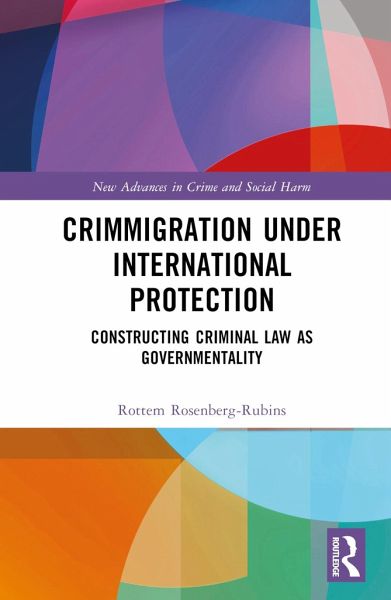
Crimmigration under International Protection
Constructing Criminal Law as Governmentality
Versandkostenfrei!
Versandfertig in 6-10 Tagen
138,99 €
inkl. MwSt.
Weitere Ausgaben:

PAYBACK Punkte
69 °P sammeln!
By exploring crimmigration at its intersection with international refugee law, this book exposes crimmigration as a system focused on the governance of territorially present migrants, which internalizes the impracticability of removal and replaces expulsion with domestic policing.The convergence of criminal law and immigration law, known as crimmigration, has become perhaps the paradigmatic model for governing migration in the age of globalization. This book offers a unique way of understanding crimmigration as a system of governmentality, the primary target of which is the population, its pri...
By exploring crimmigration at its intersection with international refugee law, this book exposes crimmigration as a system focused on the governance of territorially present migrants, which internalizes the impracticability of removal and replaces expulsion with domestic policing.
The convergence of criminal law and immigration law, known as crimmigration, has become perhaps the paradigmatic model for governing migration in the age of globalization. This book offers a unique way of understanding crimmigration as a system of governmentality, the primary target of which is the population, its principal form of knowledge being political economy, and its essential mechanism being the apparatus of security. It does so by characterizing a particular model of crimmigration, termed 'crimmigration under international protection', which targets refugees and asylum-seekers who are principally undeportable under international law. The book draws on comparative research of such models implemented worldwide, combined with a detailed case study of the immigration detention system instigated in Israel for coping with asylum-seekers specifically and exclusively. These models demonstrate that, at its core, crimmigration is not a system of outright social exclusion focused on the expulsion of undesirable migrants, but rather one focused on the management, classification and policing of domestic populations. It is argued that under crimmigration regimes criminal law becomes instrumental in the facilitation of gradual assimilation, by shifting immigration enforcement from the margins of the state to the daily supervision of territorially present migrants. The book illustrates this point by focusing on three main themes: crimmigration as domestication; crimmigration as civic stratification and crimmigration as a mechanism coined by Foucault as the apparatus of security and by Deleuze as the society of control. By exploring these themes, the book offers a comprehensive framework for understanding the rise of crimmigration and the particular ways in which it targets resident migrants.
The book will be of interest to researchers and academics working in the areas of criminal law and criminology, immigration law, citizenship studies, globalization studies, border studies and critical refugee studies.
The convergence of criminal law and immigration law, known as crimmigration, has become perhaps the paradigmatic model for governing migration in the age of globalization. This book offers a unique way of understanding crimmigration as a system of governmentality, the primary target of which is the population, its principal form of knowledge being political economy, and its essential mechanism being the apparatus of security. It does so by characterizing a particular model of crimmigration, termed 'crimmigration under international protection', which targets refugees and asylum-seekers who are principally undeportable under international law. The book draws on comparative research of such models implemented worldwide, combined with a detailed case study of the immigration detention system instigated in Israel for coping with asylum-seekers specifically and exclusively. These models demonstrate that, at its core, crimmigration is not a system of outright social exclusion focused on the expulsion of undesirable migrants, but rather one focused on the management, classification and policing of domestic populations. It is argued that under crimmigration regimes criminal law becomes instrumental in the facilitation of gradual assimilation, by shifting immigration enforcement from the margins of the state to the daily supervision of territorially present migrants. The book illustrates this point by focusing on three main themes: crimmigration as domestication; crimmigration as civic stratification and crimmigration as a mechanism coined by Foucault as the apparatus of security and by Deleuze as the society of control. By exploring these themes, the book offers a comprehensive framework for understanding the rise of crimmigration and the particular ways in which it targets resident migrants.
The book will be of interest to researchers and academics working in the areas of criminal law and criminology, immigration law, citizenship studies, globalization studies, border studies and critical refugee studies.





